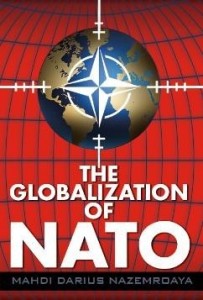|
As the world’s eyes turn to Iraq, flabbergasted at the brutality and partial success of the Islamic State of Iraq and Syria, or ISIS, takeover of major Iraqi cities with the goal of building a so-called “Islamic state” under the banner of a Sunni awakening in Shiite-friendly nations like Iraq and Syria — both bordering countries of Iran — the media is presenting this war as a sectarian conflict: Sunni vs. Shiite. But we know that this conflict is a war being fomented by competing powers who are using these exact terror groups like al-Nusra and ISIS to destabilize nations and politically fragment them to further conquer and re-map the Middle East.
As the neoconservative and quasi-liberal media discuss what the best course of action is and what our obligations are to Iraq, not a single media outlet has asked the most important questions yet: Who is aiding and arming ISIS? 
And how, in our global war on terror, did a terror group like ISIS slip under the rug in a nation like Iraq, where the largest U.S. Embassy is located? And how [are] terror groups like ISIS an expression of imperialism?
Joining me today to break down the situation in Iraq and answer who is the driving factor in this “divide and conquer” in this multi-layered game of chess is Mahdi Darius Nazemroaya, author of “The Globalization of NATO” and a forthcoming book, “The War on Libya and the Re-Colonization of Africa.”
He is also a research associate at the Center for Research on Globalization, a contributor at the Strategic Cultural Foundation in Moscow and a member of the Scientific Committee of Geopolitica in Italy.
|